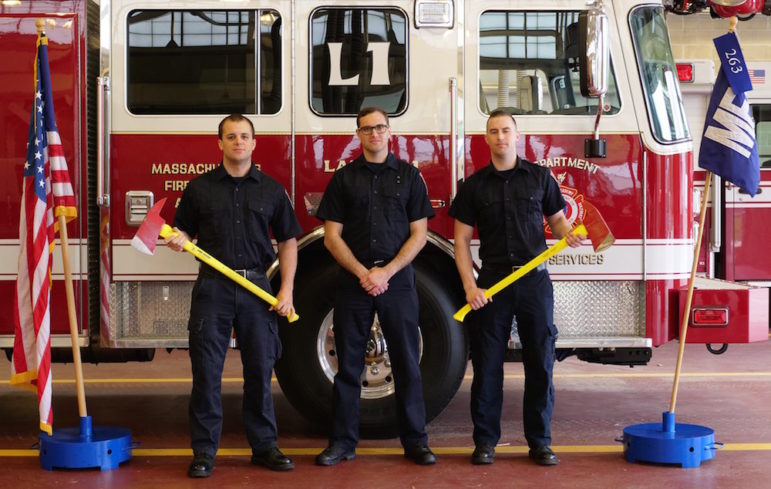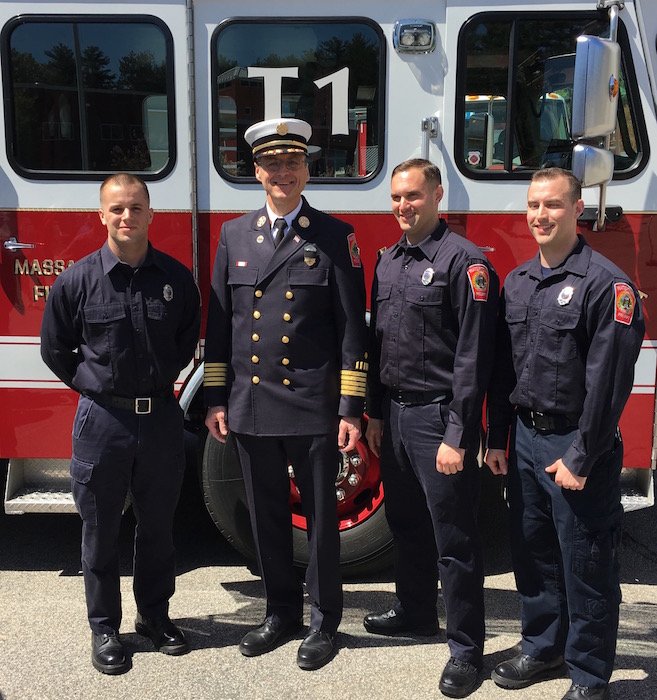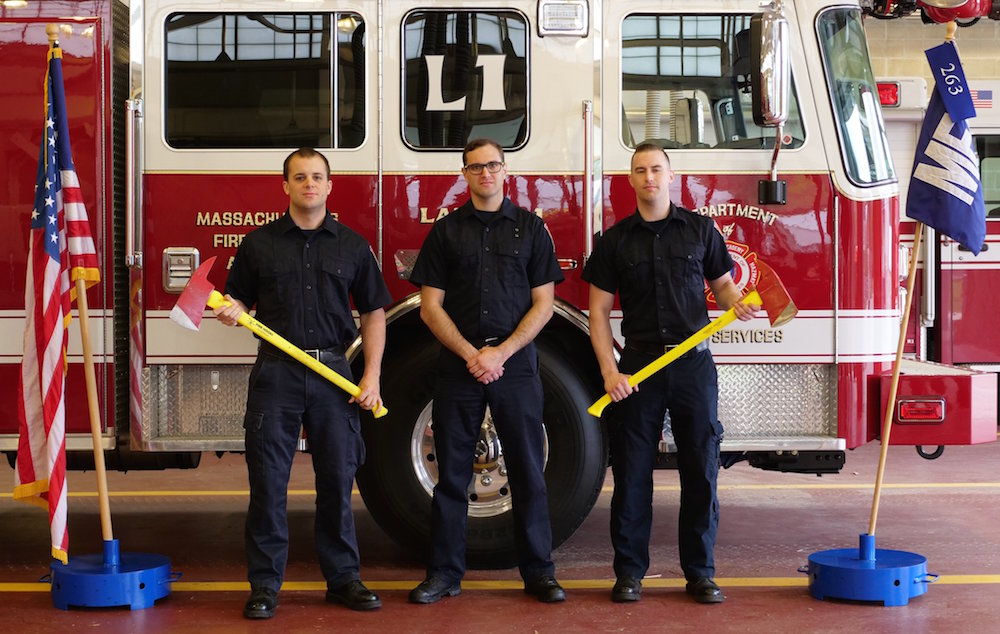
Watertown’s graduates from the Massachusetts Firefighting Academy (from left): Anthony Tomao, Daniel Russo and Taylor Davis.
Three of Watertown’s newest firefighters graduated from the Massachusetts Firefighting Academy on Friday.
Watertown Provisional Fire Chief Robert Quinn announced the graduation of Anthony Tomao, Daniel Russo and Taylor Davis from the academy in Stow.
“The Department is happy to have these firefighters trained and back at the station working to serve the citizens of Watertown,” Quinn said.
The Massachusetts Firefighting Academy sent out the following information:
State Fire Marshal Peter Ostroskey and Massachusetts Firefighting Academy
Director David C. Evans announced the graduation of the 263rd class of the Massachusetts Firefighting Academy’s 50-day Career Recruit Firefighter Training Program on May 11, 2018.
“This rigorous professional training provides our newest firefighters with the basic
skills to perform their jobs effectively and safely,” said State Fire Marshal Peter J.
Ostroskey.
The Massachusetts Firefighting Academy (MFA), a division of the Department of Fire Services, offers this program tuition-free. The ceremony took place at the Department of Fire Services in Stow, MA.
The class included 30 graduates from 21 Fire Departments. The 30 graduates, two women and 28 men, represent the 21 fire departments of: Ashland, Billerica, Boxford, Cambridge, Centerville-Osterville-Marston Mills, Fitchburg, Harwich,
Leominster, Lexington, Mashpee, Medford, Methuen, Natick, Peabody, Revere, Sandwich, Scituate, Stoughton, Watertown, Wayland and Woburn.

Watertown Fire Department
Watertown Fire Chief Bob Quinn, second from left, poses with Anthony Tomao, Daniel Russo and Taylor Davis after the three graduated from the Fire Academy in Stow.
Guest Speaker
The guest speaker was Captain Ray Vaillancourt, a 14-year veteran of the Cambridge Fire Department. He has a bachelor’s from Boston College and a master’s from Cambridge College in management. He is a graduate of Career Recruit Firefighter Training Class #166.
Capt. Vaillancourt shared some lessons learned from the experience of a line of duty death incident. His remarks underscored that firefighting is an inherently dangerous profession and that learning how to do it as safely as possible must continue throughout their careers.
The Course
Today’s firefighters do far more than fight fires. They are the first ones called to respond to chemical and environmental emergencies, ranging from the suspected presence of carbon monoxide to a gas leak. They may be called to rescue a child who has fallen through the ice or who has locked himself in a bathroom. They rescue people from stalled elevators and those who are trapped in vehicle crashes. They test and maintain their equipment including self-contained breathing apparatus (SCBA), hydrants, hoses, power tools, and apparatus.
At the Massachusetts Firefighting Academy they learn all these skills and more from certified fire instructors who are also experienced firefighters. Students learn all the basic skills they need to respond to fires and to contain and control them. They are also given training in public fire education, hazardous material incident mitigation, flammable liquids, stress management, confined space rescue techniques, and rappelling. The intensive, 10-week program for municipal firefighters involves classroom instruction, physical fitness training, firefighter skills training, and live firefighting practice.
Basic Firefighter Skills
Students receive classroom training in all basic firefighter skills. They practice first under non-fire conditions and then during controlled fire conditions. To graduate, students must demonstrate proficiency in life safety, search and rescue, ladder operations, water supply, pump operation, and fire attack. Fire attack operations range from mailbox fires to multiple-floor or multiple-room structural fires. Upon successful completion of the Recruit Program all students have met national standards of National Fire Protection Association 1001 and are certified to the level of Firefighter I and II, and Hazardous Materials First Responder Operational Level by the Massachusetts Fire Training Council, which is accredited by the National Board on Fire Service Professional Qualifications.
